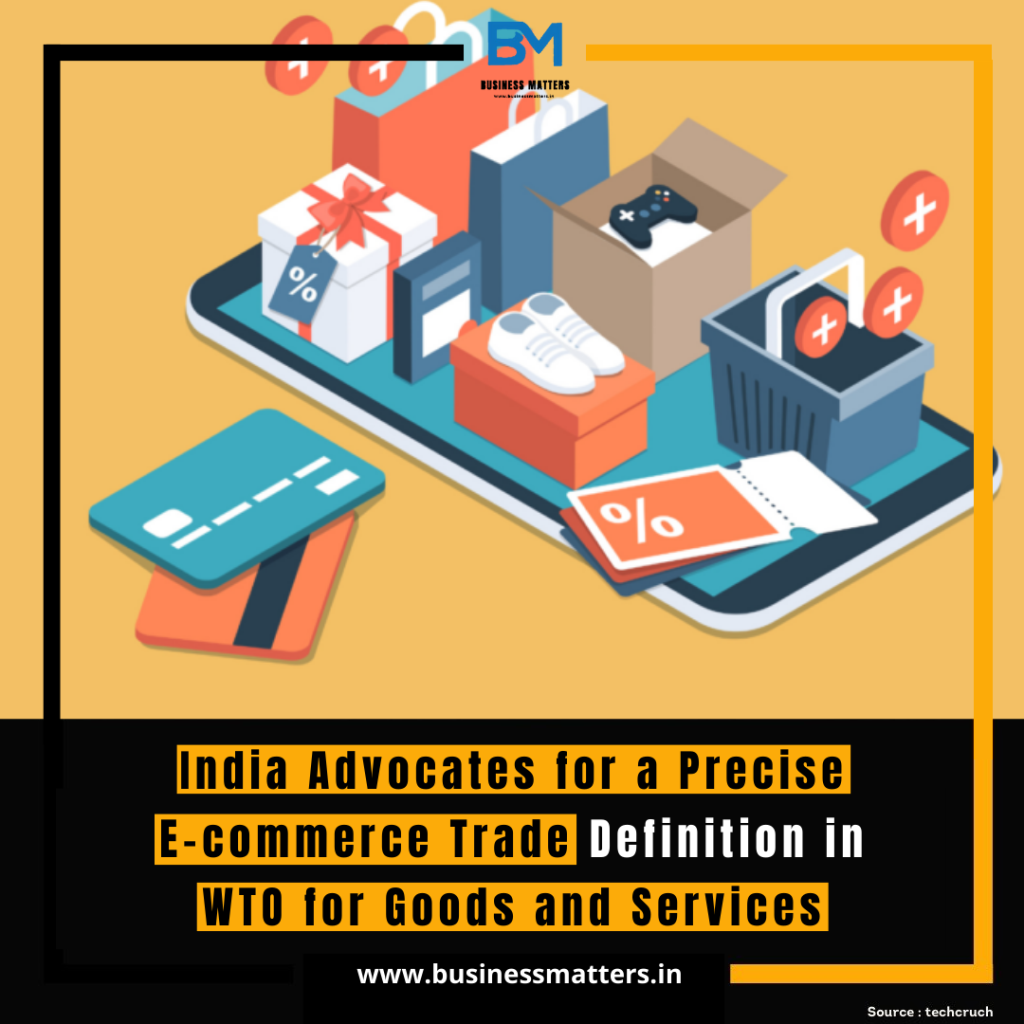
India Advocates for a Precise E-commerce Trade Definition in WTO for Goods and Services
The world of commerce has undergone a remarkable transformation in recent decades, with e-commerce emerging as a driving force behind global trade. In the wake of this digital revolution, the World Trade Organization (WTO) has found itself at the center of discussions regarding the regulation and definition of e-commerce in the context of international trade. India, as a prominent member of the WTO, has taken a proactive stance, advocating for a precise and comprehensive definition of e-commerce that encompasses both goods and services.
As the global economy increasingly shifts towards digital platforms, e-commerce has become an integral part of international trade. E-commerce allows businesses and consumers to engage in cross-border transactions, expanding market access and fostering economic growth. However, the current lack of a standardized definition for e-commerce in the WTO’s framework has created ambiguity and challenges in regulating this rapidly evolving sector.
The need for a precise e-commerce trade definition is underscored by the growing importance of digital trade. E-commerce extends beyond the mere exchange of physical goods and includes a wide array of digital services, such as cloud computing, digital downloads, and online marketplaces. For a comprehensive and equitable global trade environment, it is essential to develop clear rules that encompass both digital goods and services.
India’s position in advocating for a precise definition of e-commerce stems from its significant role in the digital and e-commerce industry. The country boasts a vibrant and growing e-commerce market, with numerous homegrown platforms and a burgeoning base of online shoppers. Recognizing the potential of e-commerce for economic development, India has a keen interest in ensuring that the rules governing this domain are well-defined and conducive to its interests.
One of the key challenges in defining e-commerce within the WTO framework lies in distinguishing between digital and physical goods and services. A precise definition should address the nuances of digital trade, encompassing both the sale of digital products and the provision of digital services, while also considering the cross-border nature of these transactions.
Furthermore, India seeks to promote inclusivity and development through its advocacy for a clear e-commerce definition. By defining e-commerce more comprehensively, it aims to ensure that smaller and developing nations can participate effectively in the digital economy. This approach aligns with India’s emphasis on fostering economic growth in a way that benefits a wide range of stakeholders.
Another critical aspect of India’s stance is the need to address issues related to data flow and privacy. E-commerce heavily relies on the flow of data across borders. India is keen on establishing rules and norms that safeguard data privacy and security in cross-border transactions. A precise definition of e-commerce can serve as a foundation for the development of international norms that protect the interests of both businesses and consumers while promoting the responsible use of data.
In addition to advocating for a clear definition of e-commerce, India is also keen on addressing the challenges related to taxation in the digital economy. E-commerce transactions often blur traditional tax boundaries, making it difficult for governments to collect revenue efficiently. India is keen on establishing fair and transparent taxation mechanisms that ensure that digital businesses contribute their fair share to the countries in which they operate.
The ongoing discussions within the WTO on the definition of e-commerce have sparked considerable debate among member countries. While many nations are in favor of a more precise definition, there are varying views on the extent of regulation required. Some argue that an extensive set of rules may stifle the innovative nature of e-commerce, while others believe that a robust regulatory framework is necessary to ensure a level playing field and protect consumer rights.
India’s approach aims to strike a balance between regulation and innovation. It recognizes the need for rules that facilitate and regulate e-commerce while avoiding unnecessary constraints on the industry’s growth. By advocating for a comprehensive definition of e-commerce, India seeks to establish a clear foundation on which regulatory measures can be built, allowing for effective governance while encouraging innovation and growth.
In conclusion, India’s advocacy for a precise e-commerce trade definition in the WTO for goods and services is driven by its commitment to ensuring that the digital economy operates on a level playing field, respects data privacy, and contributes to the development and welfare of nations. A well-defined e-commerce framework is essential to foster international trade that benefits businesses and consumers while respecting the unique nature of digital transactions. As the global economy continues to evolve in the digital age, the development of clear and comprehensive rules for e-commerce is a vital step towards shaping a fair and inclusive global trading system.

